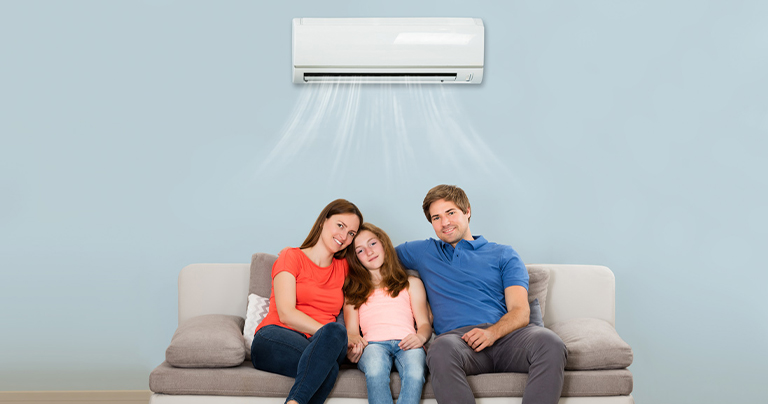
In the oppressive heat of Sri Lanka’s tropical weather conditions, air conditioners must no longer be considered a luxury, but a necessity. But if you’re in the market for a new AC, you’ve probably seen the words inverter and non-inverter. They may look like technical prattle. In fact, it can save you a substantial amount of money over time to know the difference.
So, which one will save you more?
Understanding the Basics
Let’s break it down simply:
Non-inverter ACs operate on a fixed speed. When activated, they work at full power until the temperature you want is achieved, and then they will automatically turn off. When the room heats up again, the process starts all over again.
An inverter AC, however, changes the speed of the compressor according to the room temperature. When the desired temperature is reached, they keep it by running at a low-energy level, rather than switching off.
Energy Efficiency = Cost Savings
The most notable about inverter air conditioners is energy efficiency. Because the compressor doesn’t cycle on and off, it consumes less electricity over time. This translates to lower monthly electricity bills, which is especially important as power tariffs in Sri Lanka continue to increase.
In hot and humid climates like Colombo or Galle, where the air conditioner may be running for longer hours, an inverter air conditioner can consume 30–50% less electricity than a typical air conditioner. That kind of savings can add up quickly, especially in the dry season.
Performance and Comfort
In addition to the energy savings, inverter ACs also get high marks for their smooth, silent operation. Non-inverter models are constantly being turned on and off, which can cause room temperature fluctuations and lead to higher noise levels. Models with inverter technology, however, maintain the room at a gentle, consistent level without the noticeable ups and downs you’ll get from a traditional model.
Great for bedroom or office, when comfort is a must.
Initial Cost vs. Long-Term Value
Here’s where a lot of buyers talk inverter ACs cost more upfront. Do a little research of 12000 BTU inverter air conditioner price in Sri Lanka, and you will find that the difference is significant with the non-inverter ones.
But it’s critical to look well beyond the initial price tag. The extra capital investment is typically recouped within a couple of years in the form of energy savings. And since power bills are an increasingly unpalatable part of life, buying an inverter model makes financial sense in the long term.
So, which do you opt for?
If your usage is moderate - say an hour or 2 a day - a non-inverter AC might look suitable. Yet for the majority of Sri Lankan homes and small businesses that run ACs for several hours a day, inverter models simply win out in efficiency and savings.
When you go shopping, you’ll discover that the air conditioner price in Sri Lanka differs a lot depending on brands, capacity, and features. But if you want to maximize your long-term value, going inverter is a smart move. And what’s better than choosing Daikin’s new-age inverter air conditioners that boast both powerful performance and unmatched energy-savings.
Final Thoughts
Inverter air conditioners are more than a trend. They’re an intelligent investment for those who want a respite from the heat but don’t want to bleed all their cash to the electric company. Regardless of whether you're cooling a small bedroom or a busy office, their savings, comfort and performance make them worth the initial spend.


